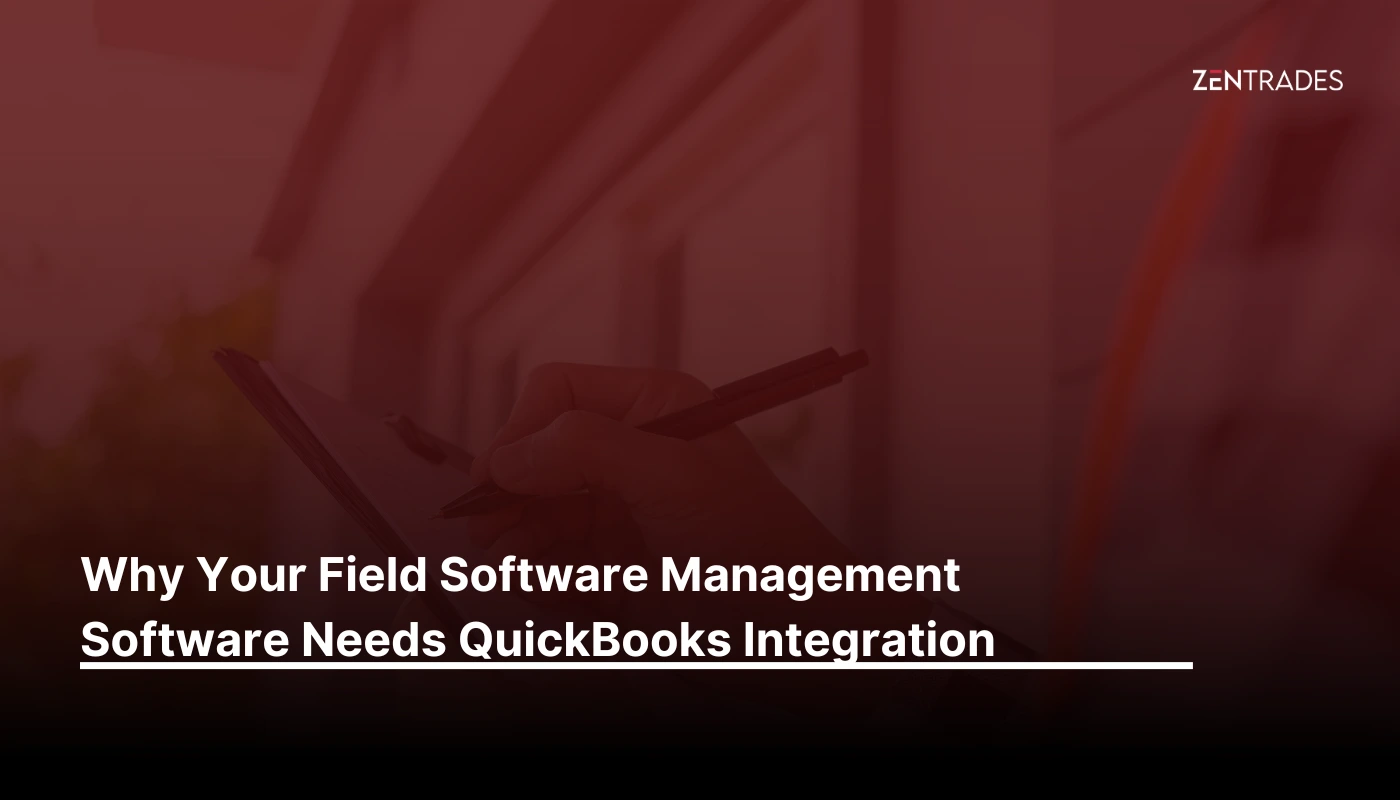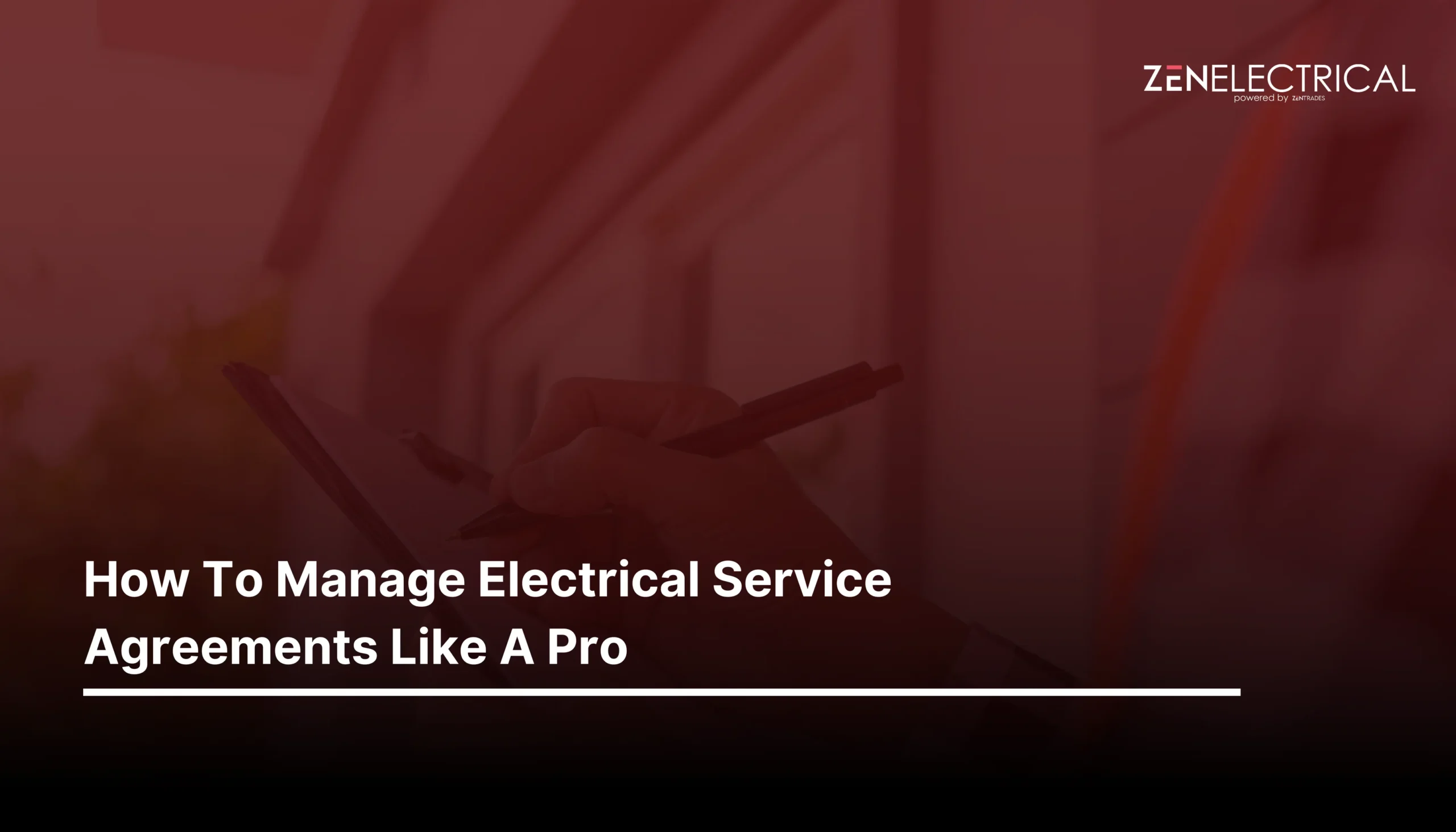5 Best CRM For HVAC Contractors In 2024
- Field Service Management
- 9 Min Read
Customer relations are essential in businesses, especially HVAC field service jobs. Although the jobs may be primarily technical, they all rely on communication and maintaining customer relationships. No matter how perfectly they do their jobs, a bad customer experience or review can cause unforeseen damage to HVAC businesses.
HVAC technicians and customer service representatives are encouraged to cultivate strong and positive customer relationships. This is something that Customer Relationship Management software can assist you with. Additionally, HVAC businesses will also benefit from CRM software features..
There are numerous moving parts in HVAC customer relationship management. The processes can become a significant headache without a unified system to keep them all in sync. And the consequences can be costly, resulting in issues like:
- Workflow Inefficiencies: Tracking customer information and manually entering data into multiple HVAC apps, spreadsheets, and other systems.
- Poor Communication and Customer Experience: Failure to correspond with customers on time or inability to communicate with customers via their preferred channels.
- Revenue Opportunities: Difficulties tracking sold and unsold estimates and failing to follow up and convert on open opportunities.
With multiple business advantages, you must be itching for the best CRM software for your HVAC contracting business. You also must be wondering how to find the right fit for you and your business. One that streamlines and optimizes your workflow, syncs, and integrates with other software takes a lot of effort. The CRM should also be user-friendly for technicians and have an up-to-date, modern user interface. Well, fret not. We have your back and will be helping you sift through the sand until you find gold.
Here are five up-and-coming CRM software in 2024 for HVAC businesses that can optimize your business and improve revenue. These top CRM software have been chosen based on their famous and unique features that can assist you and your business distinctively.
You can also schedule a free demo with ZenHVAC to gain insights on how to increase your business efficiency, productivity, and revenue.
Here What We Cover
What Features Should Your HVAC CRM Software Have?
CRM is an abbreviation for customer relationship management. It is a cloud-based software program with numerous features to improve and streamline the customer experience and make your day-to-day life more manageable. Because a CRM is a web-based platform, you can use it as a field service management tool on the job site. Sometimes, businesses confuse FSM and CRM, so we have created a detailed guide to understand these better..
An HVAC business CRM software allows you to keep all of your customer and project data in one place rather than storing it in multiple Word documents or file cabinets, making it easy to access all of this information with the click of a button.
CRM software can help many industries and help contractors and HVAC companies save time and energy that could be better spent doing the hands-on work for which you were hired rather than back-end tasks. CRM systems are all different. This is critical when deciding which to use in your contracting business. For example, a CRM that works for a larger company may be more complex than necessary for your business. Fortunately, many CRM options can meet your needs!
Features and Functionality
Examining CRM features before considering using them for your business is essential. These extra features will only be helpful if your CRM works properly! As a contractor, you will likely only require one of the simpler CRM systems rather than a more prominent firm.
Consider your company’s requirements, and then look for a CRM that can meet those requirements. Look for a scalable CRM that can be upgraded as your company grows and your needs change.
System Integrations
Another critical factor to consider is whether or not a CRM system integrates with the other applications you already use daily. As a result, the CRM system can effectively streamline your processes. It should be compatible with Office or Google G Suite and other software, such as accounting or marketing solutions. The ease with which existing data can be transferred into this CRM and the ability to export data from it later will be critical considerations.
Comparison of Qualities
Request a free trial of the CRM system you are considering. You should do this for multiple CRMs to compare their strengths and weaknesses and narrow your options. You should always try out the software before purchasing it to see how it works in real-time. CRM companies frequently provide this, so the request should not be surprising.
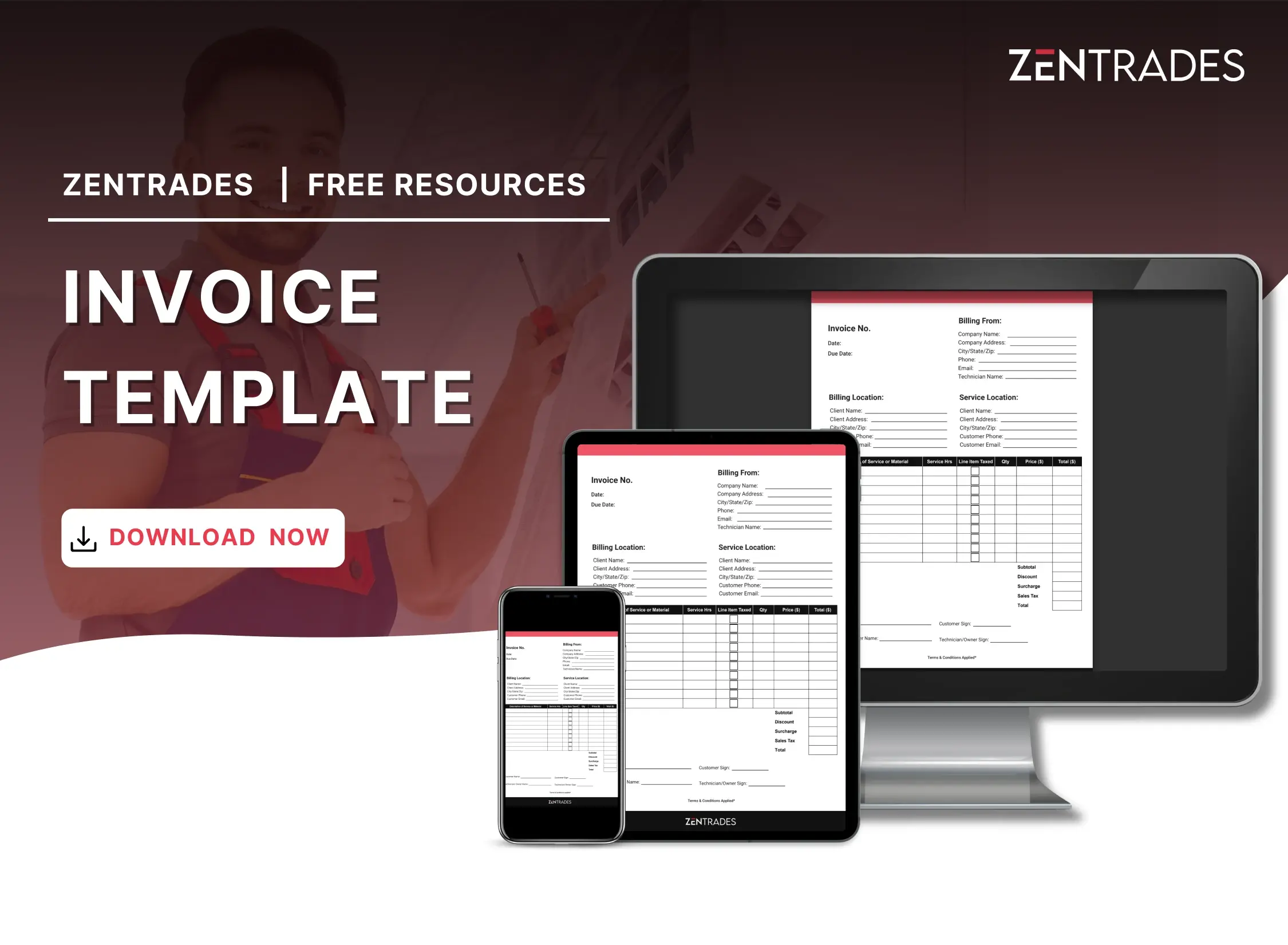
Use our free estimate template now
Make winning quotes in minutes—for any industry and any job.
The Best CRM Software For Your HVAC Businesses
We’ve compiled a list of the five best HVAC CRMs out there that can help your HVAC businesses the best.
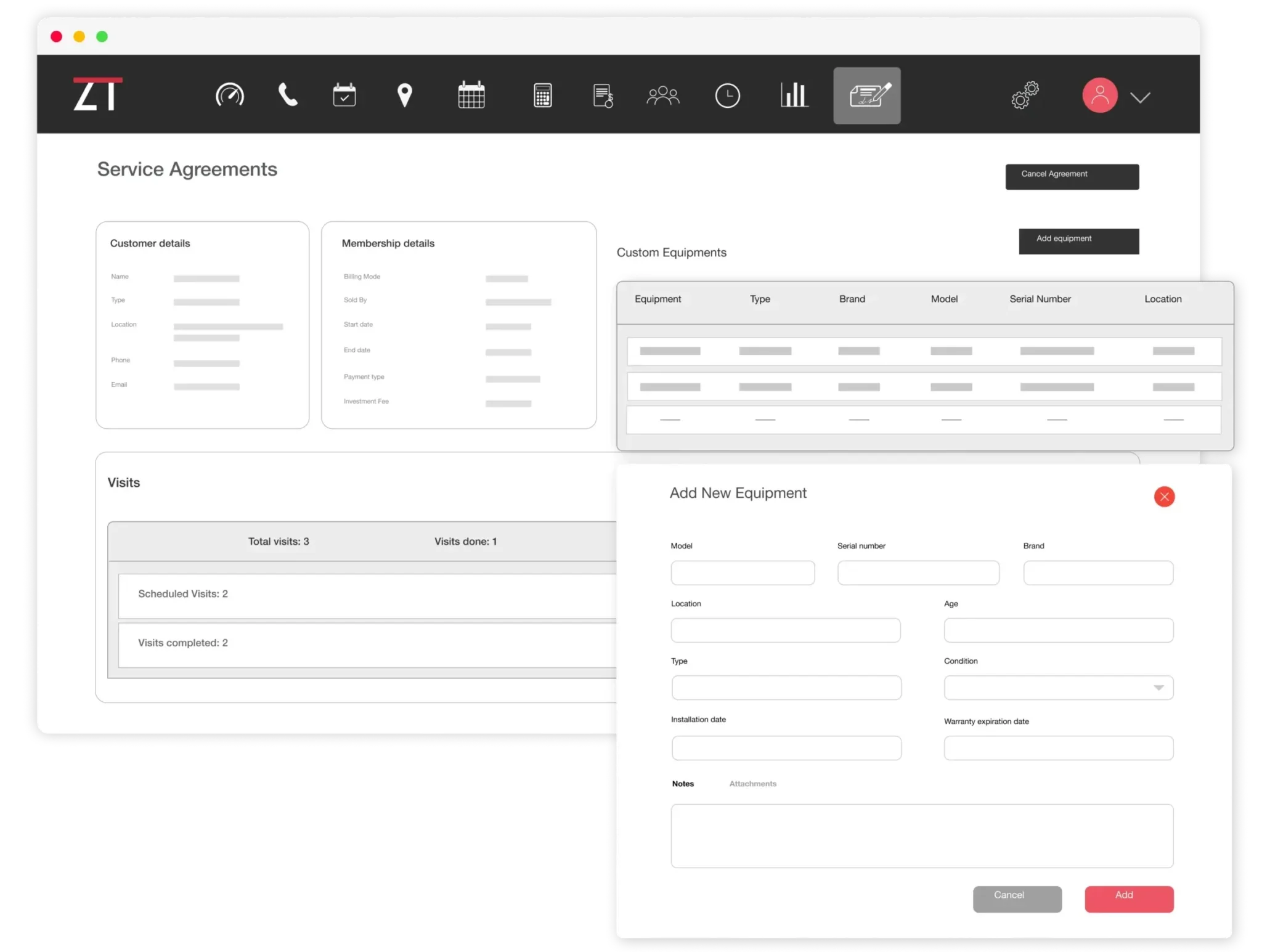
ZenHVAC
A CRM can tackle multiple pain points in the business workflow. Office managers are responsible for most of the process when it comes to managing customers, maintaining CSR (Corporate Social Responsibility), and running a business smoothly.
ZenHVAC’s CRM can take up the burden of doing all the time-consuming work, like creating spreadsheets, keeping paperwork, and filing cabinets.
Sloppy notes, misheard information, or misplaced paperwork can cause problems, but they can also lead to more significant issues and unhappy customers. The ZenHVAC’s CRM software also keeps technicians in the loop.
Features
1. CALL BOOKING AND CUSTOMER PAGES
ZenHVAC begins improving customer service when a call arrives at the office. Before a customer service representative even answers the phone, they can see the customer’s name and phone number, which the software provides through an automated process. As a result, the CSR can address the customer by name, providing a more personalized experience.
ZenHVAC can automatically provide information about the caller’s property, revealing valuable information about potential sales opportunities.
Whether the caller is a long-time customer or brand new to your company, all their customer information is automatically logged and stored in one place—rather than in a disjointed system of spreadsheets and file folders.
As previously stated, ZenHVAC connects all of the core elements of an HVAC business, including scheduling and dispatching, work order management, job management, and more.
All centrally stored, cloud-based customer data is easily and instantly accessible for marketing, follow-ups, and service agreement management, to name a few possibilities.
2. IMPROVES CUSTOMER SERVICE AND EXPERIENCE
It is a powerful customer service tool that provides much better service than you could otherwise.
A CRM platform centralizes all of your information, making it easy to access any information if you disagree or have a problem with one of your clients. You can quickly resolve the issue and save your customer from annoyance and frustration.
Automation can also improve customer service by immediately providing specific information to your clients, eliminating the need for them to wait for quotes, contracts, and other documents.
3. FOLLOW-UPS
Following up on unsold estimates is critical for an HVAC specialist. As service industry veterans know, business owners frequently lose a lot of income simply by forgetting or failing to pursue potential jobs.
Trying to track and follow up on bids that are frequently delivered to different customers in different formats—by hand or mail, or as a PDF, via email—can be difficult, especially without the help of a CRM. ZenHVAC also allows users to automate SMS text reminders for recurring service events. Contractors can use this feature to free up their CSRs’ time to book more jobs and eliminate the need to call customers to remind them to schedule the service visits they’ve paid for as part of their maintenance agreements.
Text notifications are an excellent way to ensure that those visits do not slip through the cracks, ensuring that customers are satisfied that they are getting their money’s worth.
Reminder campaigns, delivered via text and/or email, can also be created to notify customers about upcoming maintenance agreement renewals and expirations. These campaigns assist contractors in maintaining a consistent revenue flow throughout the year, even during slower seasons.
4. GENERATE MORE SALES
Many CRMs are explicitly designed to aid in sales. Their unique features can significantly improve your sales approach and lead to more customers or more extensive sales with your current clients! Many of these features are helpful because they are automated or will notify you of specific events, such as when you receive a response.
This lets you focus on other business aspects without worrying about sales. CRM software also includes analytics, which enables you to examine what isn’t working in your sales strategy. You can also use them to identify your top customers to provide the best experience and service levels when closing a sale.
5. INCREASES EFFICIENCY
One of the most important benefits of a CRM system is increased efficiency. This efficiency can be applied to various aspects of your business, such as communication and sales.
Because your CRM collects and stores information in a centralized location, you can easily access it with a button rather than searching through documents or file cabinets. With the help of our QuickBooks integration, your operations can become more efficient.
Most CRMs include automation, which allows you to save time by automating specific tasks. Administrative tasks like contract sending are examples.
6. IMPROVES MARKETING
Creating effective email marketing campaigns for service businesses can be a time-consuming and often confusing process of sifting through customer data and attempting to sync email platforms with CRM software. Without a centralized platform, contractors trying to email marketing manually frequently produce imprecise results: spray-and-pray rather than precisely targeted.
We can create campaigns in Marketing Pro for any purpose. Still, some of the most popular choices for HVAC contractors include unsold estimate follow-ups, membership agreement renewals, and equipment replacement.
7. INCREASES COLLABORATION
If you are a sole proprietor, you are most likely in charge of every aspect of the process, from sales to the HVAC work you are hired to do. A CRM can help you collaborate more effectively if you have just one other person working with you, such as an office worker who handles your sales communications.
CRM software can assist you in passing information back and forth because it is all in one location. As a result, it allows you to collaborate and manage the complex customer life cycle.
Pros
- Optimizes workflows, cuts administrative overhead, and elevates customer service, driving productivity and profitability for plumbing organizations.
- AI Estimation tools for customized evaluation of estimates and invoices.
- Smart calling features that allow immediate communication between technicians.
- One-step digital transformation, ensuring a smooth transition with minimal disruption.
- Technicians can update information at any location with solid offline capabilities.
Cons
- Longer onboarding process for integration of software
- It does not offer a free version
Pricing
ZenHVAC offers a custom pricing plan based on the number of HVAC technicians who will use the CRM software.
Get posts like this in your inbox.
Keep learning how to run a 5-star business with our bi-weekly newsletter.
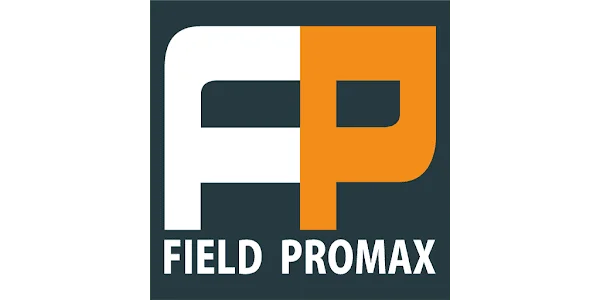
Field Promax
The right answer to this question is: it depends. There is no doubt that customers will be satisfied after the job is completed at a flat rate. Because they are guaranteed a fixed price, or one that is very close to it, unless something very unexpected occurs, the tough moment is removed between you and the customer.
But take the case of SAAS companies like ZenTrades that provide field service management software solutions to industries plumbing, HVAC, fire, electrical, etc. We reject the idea of a one-size-fits-all strategy. Larger organizations might need more features or bandwidth than your flat rate subscription plan can provide, while small business owners might choose software that provides a more affordable beginner plan. Hence trusted companies like ZenTrades have customized pricing. If you are a field service contractor, book a free demo with ZenTrades and get customized software at a customized price. In the same way, many SAAS and IT service companies prefer flexible pricing over flat rates.
Whereas if you are into field service industries like HVAC, plumbing, or electrical then, flat rate pricing can be the better option. But make sure you’re covering all of your overhead costs, such as non-billable hours, supplies, and insurance when figuring up your flat rate charges for your business.
Overall, flat rate pricing can be a helpful pricing strategy for businesses. It can be easy for customers to understand, and it can encourage bulk purchases. But businesses will need to be careful when setting prices to avoid losing sales or revenue.
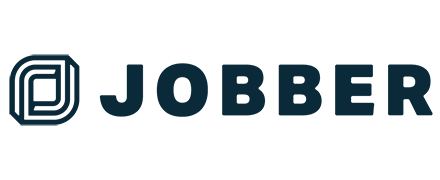
Jobber
Jobber assists home service businesses in providing a consistent customer experience and keeping jobs on track from when the customer requests service to when you are paid.
Jobber can be tailored to your specific process, regardless of industry. Schedule jobs efficiently, optimize routes, send quotes and invoices via text, and get paid on-site.
Features
Client Manager: You can customize your clients’ profiles and save the most important details.
Job History: Easy access to the client’s entire history anytime.
Communication History: You can access your clients’ past emails, texts, notifications, and booking confirmations.
Client Hub: An online portal for customers to request the work they want. Approve quotes, appointment details, and easy payment with a single click.
Pros
- Customers can submit detailed work requests online
- 14-day Free trial available
- Online access to quotes and invoices
- Provides marketing tools like reviews and campaigns
Cons
- It does not pertain to the HVAC industry specifically
- Software is in the higher price range
Pricing
Jobber offers a three-tier pricing structure to its customers: Core, Connect, and Grow.
Core Plan: $49 per month (one user only)
Connect Plan: $119 per month (up to five users)
Grow Plan: $245 per month (up to 15 users)

Housecall Pro
Housecall Pro is a full-service application that allows service professionals to manage their entire business from their smartphone and a complimentary web portal.
The app is reasonably priced and assists service professionals with all aspects of their workflow, including QuickBooks Desktop and Online integration, job scheduling, customer database, invoicing and payment processing, technician dispatch, and more. It also has full integration with the Housecall consumer booking app.
Features
Follow-up Messages: It automatically sends custom follow-up messages to rebook appointments, get reviews, or simply say thank you after each job.
Automatic Review Management: Their automatic review management software makes garnering professional-client feedback and improving your ratings and reviews easy.
In-App Chat: A feature that helps customers stay in the loop and get real-time updates.
Online Booking: This makes it easy for customers to schedule their services online and set arrival windows to know when to expect the technicians.
Pros
- Provides online booking feature
- Mobile accessibility with in-app chat feature to keep customers updated
- Provides 14-day free trial
- Reviews can be automated after completion of each job
Cons
- No availability of offline mode. You always need to have an internet connection to use the software.
- It can be expensive for businesses catering to smaller audiences.
Pricing
Their pricing Includes a three-tier pricing structure: Basic, Essentials, and Max.
Basic Plan: $49 per month (for one user)
Essentials Plan: $129 per month (for one-five users)
Max Plan: $300 per month (for more than 100 users)

Service Fusion
Service Fusion is web-based field service management software with features like customer management, invoicing, payments, inventory management, time tracking, and reporting.
Service Fusion enables users to quickly generate estimates and job confirmations by utilizing the pre-populated product and service line items, tracking referral sources, and assigning jobs to sales personnel for commission calculation.
Features
Web Booking Portal: Effortless booking and scheduling platform for clients
Service Call AI: Helps you convert website visitors into leads.
Real-time Notifications: Get live updates on your technicians, job status, and customer updates.
Contactless E-Sign: Online signature feature for signing contracts and invoices on the go.
Pros
- Easy QuickBooks integration
- Provides offline mode
- All pricing plans include unlimited users
Cons
- 24/7 customer support is not available
Pricing
It offers a three-tier pricing structure: Starter, Plus, and Pro. It also provides monthly and yearly plans with unlimited user access.
Starter Plan: $165 per month (billed annually)
Plus Plan: $250 per month (billed annually)
Pro Plan: $420 per month (billed annually)
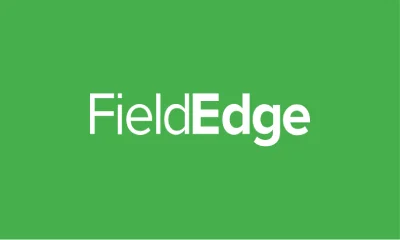
FieldEdge
FieldEdge is the leading field service management software for contractors in the HVAC, plumbing, electrical, and other industries. Because the web-based program is accessible from the office and the field, you can manage your business while on the go.
The dispatch board saves office staff approximately 20+ hours per week by allowing them to assign work orders based on a technician’s skill set and the expected location at the time of the job. With its seamless QuickBooks integration, FieldEdge also helps automate the billing process and eliminates double entry.
Features
Price Book: This can help sell additional equipment and services with a visual presentation, enabling ‘good,’ ‘better,’ and ‘best’ options.
Overview Dashboard: Access to customer history and equipment tracking with pictures and attachments at a glance.
Inventory Management: Access and manage your inventory regardless of its size
Mobile Payments: Allows smooth processing of payments with multiple payment options.
Pros
- Availability of online customer portal
- An efficient mobile CRM
- Easy quickbooks integration
Cons
- Users have reported issues with quickbooks integration
- Unavailability of automatic quotes and invoice follow-ups
Pricing
A three-tier pricing structure is available – Select, Premier, and Elite.
Prices for plans can be made available upon requesting the FieldEdge team.
Conclusion: HVAC CRMs
Upgrading to CRM software has numerous benefits, but one of the most important is convenience; there are actual consequences to not having a CRM, the most significant of which is lost revenue.
It is difficult for office staff to use their time efficiently without a CRM. Customers may become dissatisfied, and you may miss opportunities to receive customer feedback and online reviews. Ultimately, you need to be more organized and professional.
CRMs help improve customer relationships and benefit businesses and employees. Softwares like ZenHVAC are a one-stop shop for business owners seeking field service management software to enhance and streamline their internal processes.
You can also get free cultural assessments and business consultations from the field’s top experts. Request a free demo to get an in-depth walk-through of how CRM software works in 15-20 minutes.

Explore a better way to grow your business. Book a free demo now!
Get organized, win jobs, and wow customers.
Book A Free Demo with ZenTrades Today!
Related Reading
Why Your Field Software Management Software Needs QuickBooks Integration
ZenTrades Why Your Field Service Management Software Needs QuickBooks Integration Read More Request Demo...
Read MoreZenTrades How To Manage Electrical Service Agreements Like...
Read MoreZenTrades The Best 5 Jobber Alternatives In 2023...
Read More